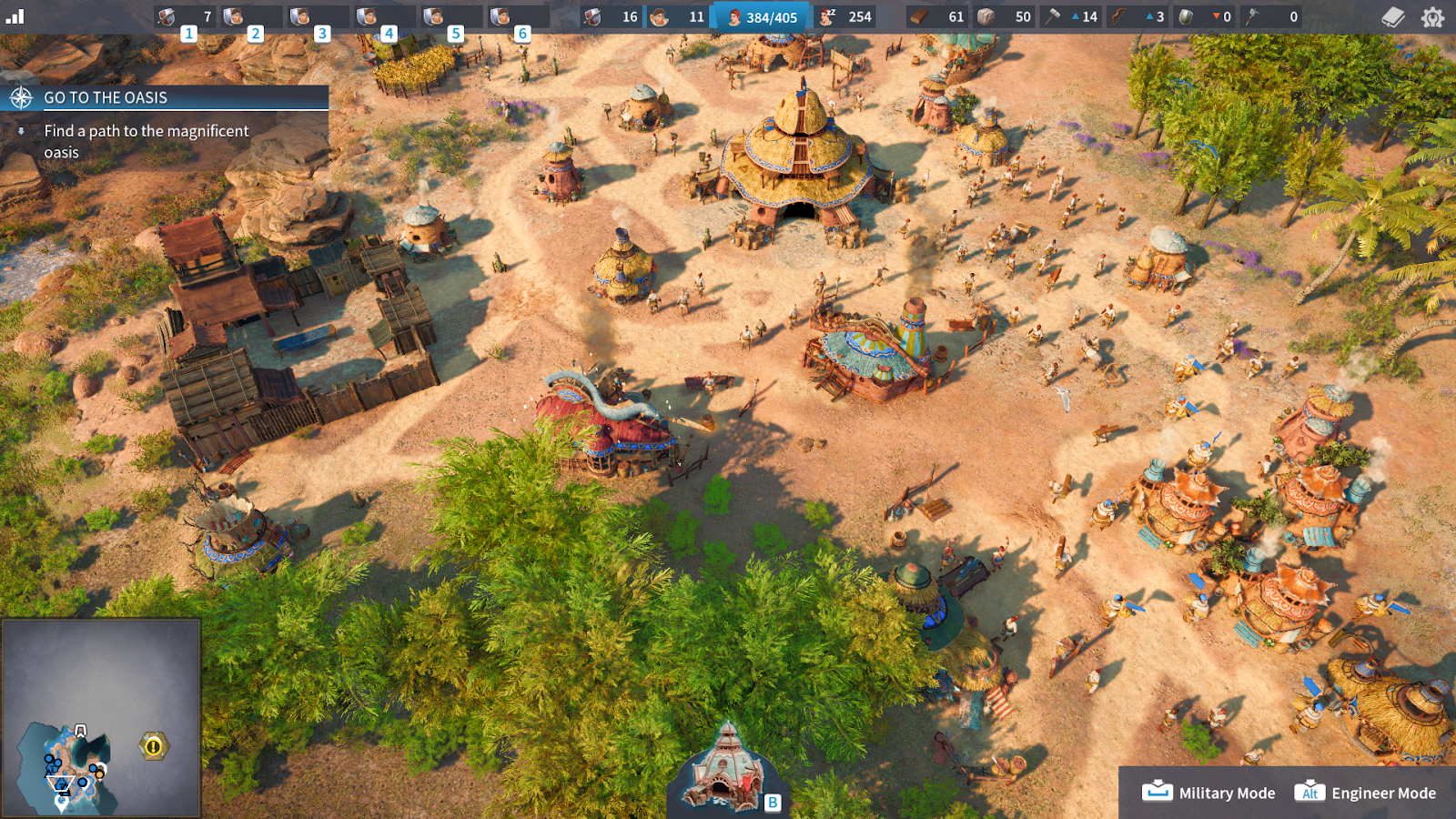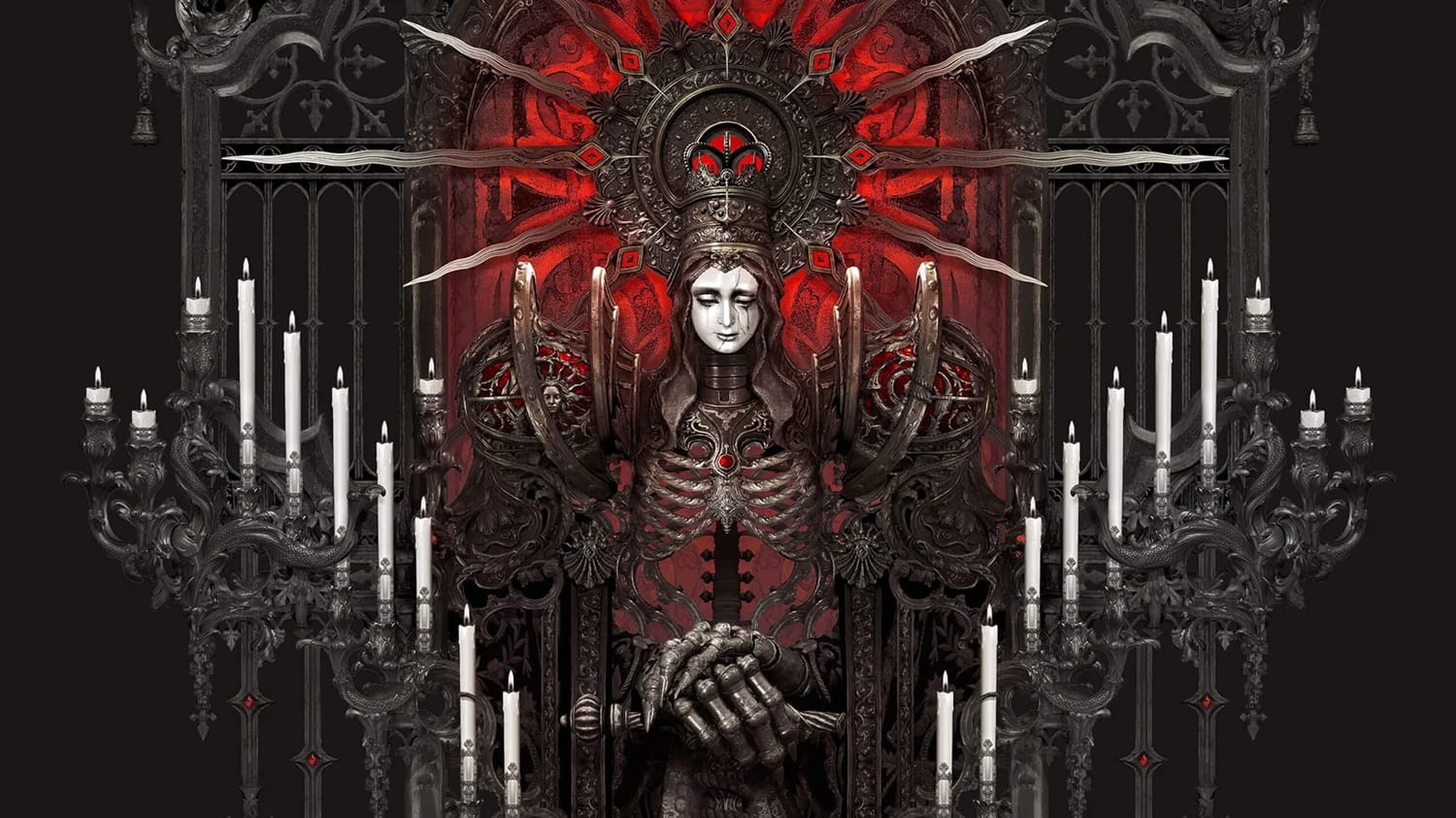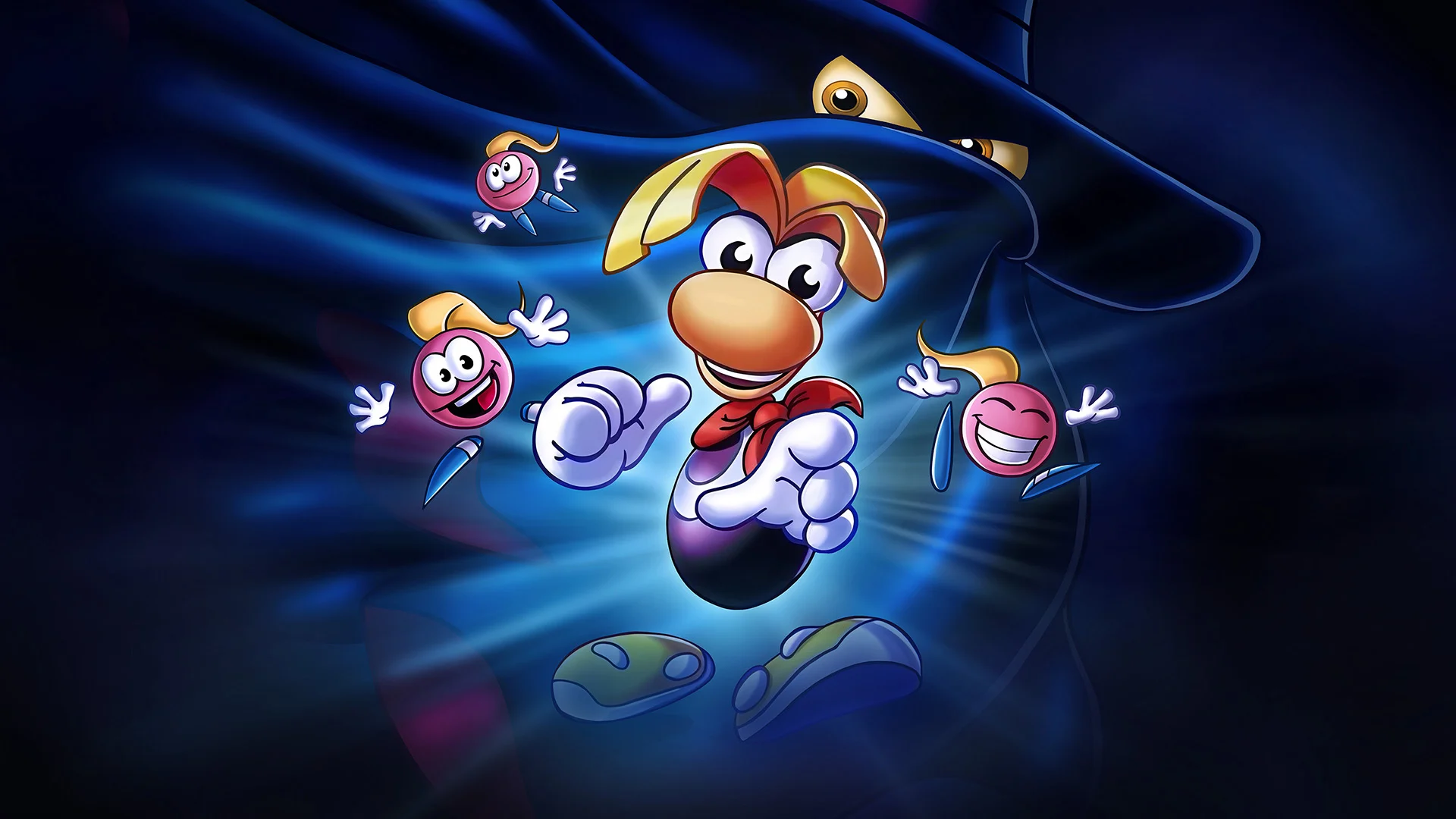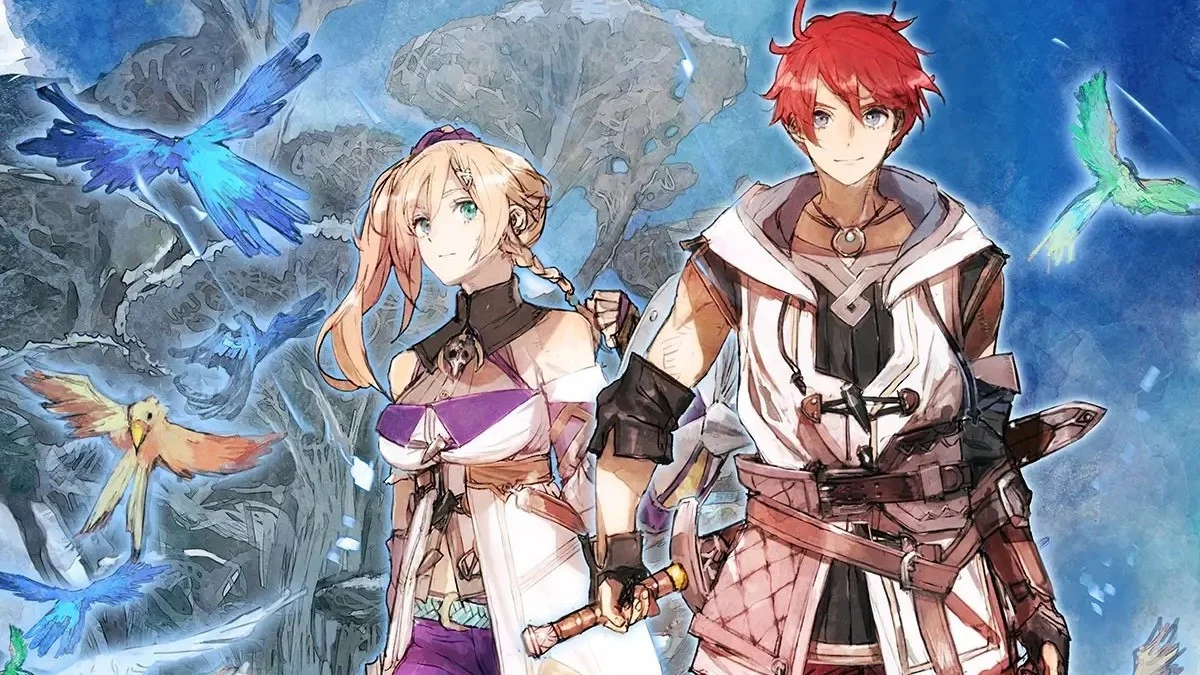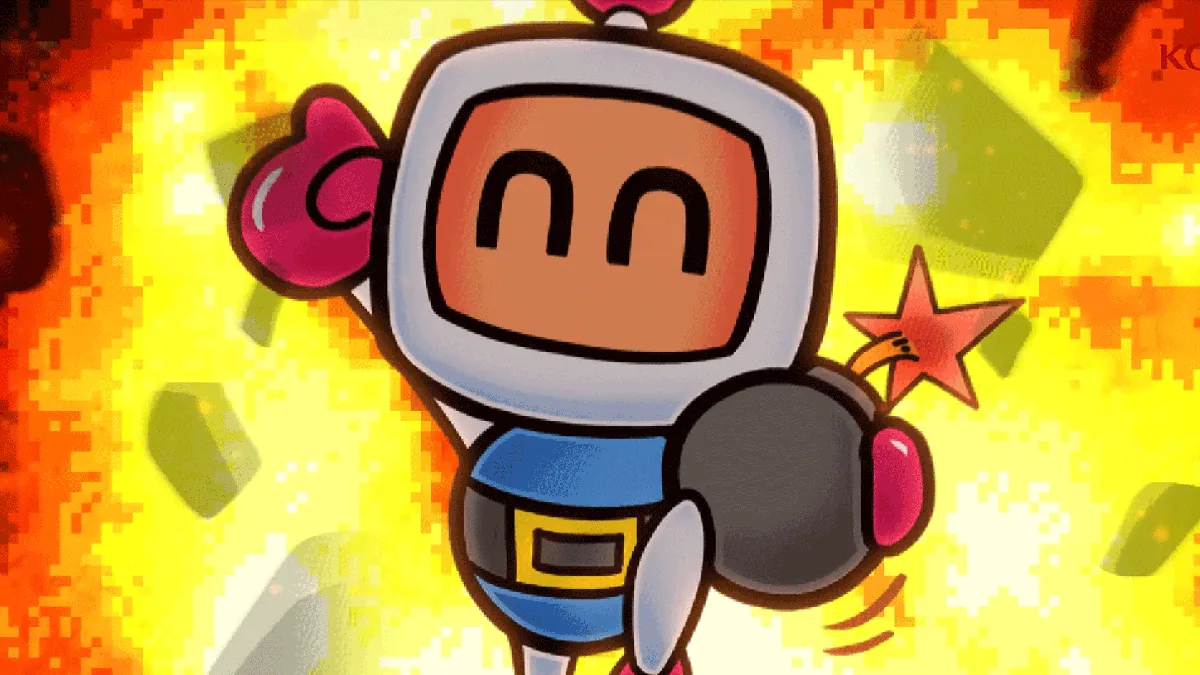It has been a long, hard road for The Settlers: New Allies. This new entry in the German city-building series, which began in 1993, finally ends a 13-year hiatus. That period was marked with a number of failed attempts, including an action RPG shorn of the Settlers name and released as Champions of Anteria in 2016. New Allies itself was announced almost five years ago, and since then has endured multiple delays and a badly-received beta.
Extensively re-tooled, this fresh start for the venerable series has finally arrived – and with it, the scars of its troubled development. This is an attractive, thoughtful game which is clearly the product of a lot of work. At launch, however, it has notable stability issues and again plays out the deep design tensions that have bedevilled the series for many years. New Allies is an often awkward mix of city-building and real-time strategy elements which will likely struggle to please fans of either camp.
The centrepiece of the game is its campaign. This plays out over a series of acts and puts players in control of three factions in turn – the Elari, the Maru, and the Jorn. The fantasy setting has broadly medieval trappings but the tone is warm, bright, and upbeat. Sure enough, the 11-part tutorial and early missions make a positive impression. Ubisoft Düsseldorf have crafted a genuinely beautiful world, an archipelago that teems with life. There are rolling hills populated by deer, azure lagoons in which turtles swim, and picturesque cliffsides circled by seabirds.

Getting to grips with the economic systems, players can enjoy that great pleasure of city-building games – seeing hundreds of tiny people going about their daily tasks down below. Ubisoft Düsseldorf – the current moniker of series creators Blue Byte – clearly revel in these details. New Allies has one of the most absorbing, fascinating depictions of economic activity that can be found.
It doesn’t take long, however, for those old design tensions to loom over the experience. City-building and real-time strategy clearly share a good deal of DNA, but they have always made for a strange combination. Viewed purely as a city-builder, New Allies is an overly simplified stack of shortened supply chains, lashed to an unnecessary combat system. Viewed purely as an RTS, New Allies is a crude experience with simple units, overly dependent on tower defence and hobbled by extremely slow resource collection.
The only way that New Allies can hope to satisfy is as a fusion of these two poles – and it does, to some extent. It can be fun to gradually build up the infrastructure needed to mount a military campaign, but it does require patience – this is a slow, meditative game with large maps that take minutes for troops to cross.
There are key elements, though, which feel badly underdeveloped. Writing and story have rarely been strengths in the genres that New Allies occupies, but there is simply a hole here where characters and identity should be. The campaign focuses on a group of Elari refugees from a military coup in their homeland, but the story is told with such hugely broad strokes that it never makes an impression. Ubisoft Düsseldorf made a conscious decision to omit any conflict between the three factions. This aids the friendly, upbeat atmosphere but it also robs the game of almost any personality and narrative drive.
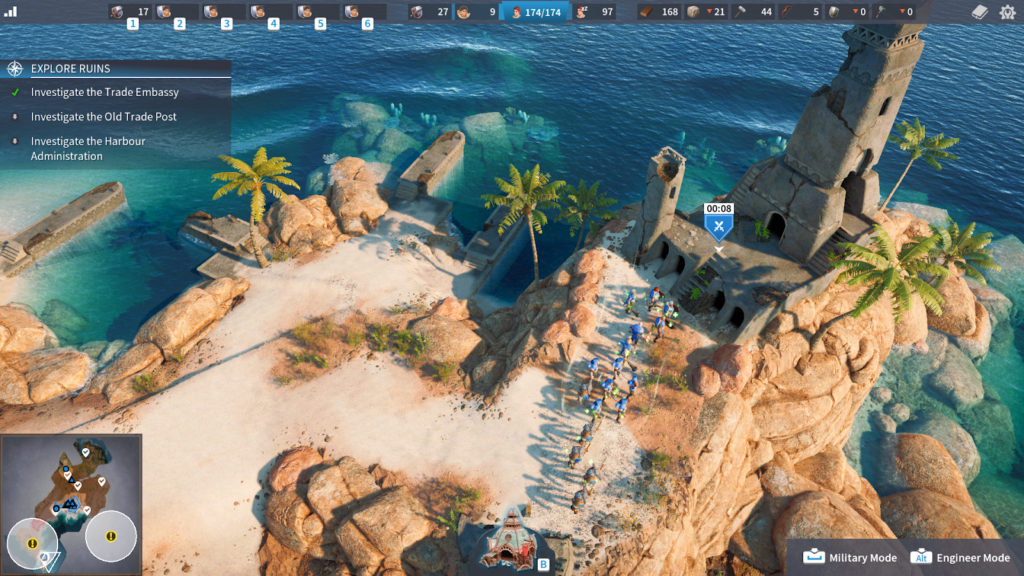
The missions, too, are bland. As beautiful as the locales are, they are backdrops for only the most pedestrian objectives. Battles with bandits, such as they are, amount to little more than chokepoints gate-keeping access to the next area. Any sense of flow is undermined by how ponderous it is to reach objectives, or move resources from place to place. The voice cast try their best to inject the campaign with meaning, but ultimately it is like a Ming vase – beautiful and intricate, but entirely hollow.
The multiplayer feels quite basic at launch, accommodating only 1v1 and 2v2 matches. In a mode which emphasises violent conflict, the limited range of units, broadly identical factions, and few possible strategies in New Allies seems unlikely to keep players coming back. This is especially true if Ubisoft can’t swiftly fix the desynchronisation issues. Despite generally good optimisation on PC, the game in general is not stable enough. It consistently crashes on exit right now, and occasionally on loading a saved game. The other big question that looms over New Allies is how it will play on consoles – because in a surprising series first, it will be released on those platforms in the coming months.
It’s clear that The Settlers: New Allies has promise. It is lovely to look at, has a good soundtrack, and provides an often satisfying city-building experience. But its inclusion of real-time strategy elements reignites a thorny old tension which Ubisoft Düsseldorf have been unable to resolve. Despite its warm and friendly appearance, New Allies also struggles with its lack of any kind of narrative hook. Patches may well resolve the lingering technical issues, but will not fix these fundamental problems. The first major strategy release of what may be a landmark year for the genre, New Allies largely fails to live up to its name. It is hard not to wonder what might have been.

